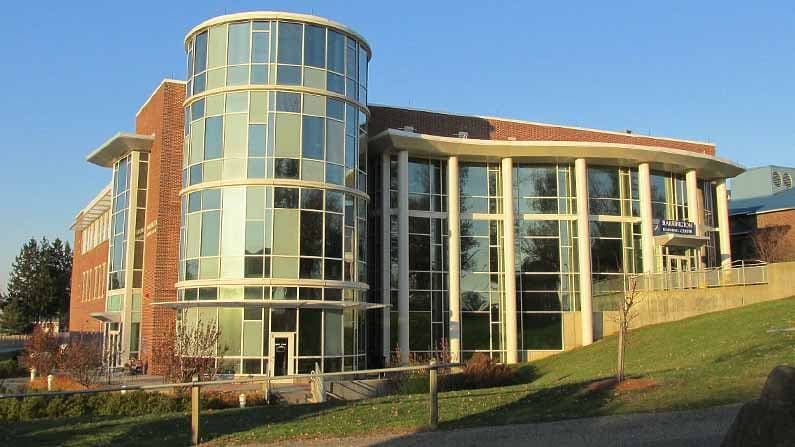QCC Announced Grant to Support Adult Learning Program
QCC Announced Grant to Support Adult Learning Program This Week In Worcester


Quinsigamond Community College Receives Grant to Support Adult Learners

WORCESTER – Quinsigamond Community College (QCC) has been awarded a grant of $675,000 from the Massachusetts Department of Elementary and Secondary Education (DESE). The funding, which will span over three years, aims to support QCC’s Future Focus program. This program is designed to assist adult learners who are transitioning from adult basic education programs.
Expanding Opportunities for Adult Learners
Gilmarie Vongphakdy, the Coordinator of the Future Focus Program, expressed her excitement about the grant, stating, “Many of our students are parents, work full-time, or have never used English in a college setting. This grant will also enable us to expand our course offerings from five to eight and offer laptop loans, addressing the technological barriers many of our students face.”
Overcoming Challenges and Achieving Success
Adwoa Koduah, a resident of Worcester, shared her experience as a student in the program. As a mother of four children and an employee at a senior living facility, she initially found it intimidating to return to school and be surrounded by younger individuals. However, she emphasized the tremendous help that Future Focus has provided her. She stated, “The first step is always the hardest, but it’s so worth it.”
Benedicta Boateng, another student in the program, recalled feeling too old to pursue a college education. She admitted that she almost gave up at one point, struggling with a class. However, with the encouragement of Gilmarie and the support of Future Focus, she was able to pass her class. Boateng expressed her gratitude, saying, “Future Focus gave me the confidence that no matter my age, with determination I can further my education.”
Supporting Adult Learners’ Academic Journey
The Future Focus initiative aims to bring adult learners to QCC and provide them with extensive academic and college readiness support to enhance retention rates. Additionally, the program offers college credit courses free of charge, including tuition, books, supplies, and transportation if required.
Image Credit: John Phelan, Harrington Learning Center, Quinsigamond Community College, Greendale MA, CC BY-SA 3.0
SDGs, Targets, and Indicators
| SDGs | Targets | Indicators |
|---|---|---|
| SDG 4: Quality Education | 4.3: By 2030, ensure equal access for all women and men to affordable and quality technical, vocational, and tertiary education, including university | – Number of adult learners transitioning from adult basic education programs – Number of course offerings expanded from five to eight – Number of students benefiting from laptop loans |
| SDG 4: Quality Education | 4.4: By 2030, substantially increase the number of youth and adults who have relevant skills, including technical and vocational skills, for employment, decent jobs, and entrepreneurship | – Number of adult learners in the Future Focus program who acquire relevant skills for employment – Number of students who successfully complete college credit courses |
| SDG 5: Gender Equality | 5.5: Ensure women’s full and effective participation and equal opportunities for leadership at all levels of decision-making in political, economic, and public life | – Number of women benefiting from the Future Focus program – Number of women who successfully complete college credit courses |
| SDG 8: Decent Work and Economic Growth | 8.6: By 2020, substantially reduce the proportion of youth not in employment, education, or training | – Number of adult learners in the Future Focus program who are employed or enrolled in education or training |
| SDG 10: Reduced Inequalities | 10.2: By 2030, empower and promote the social, economic, and political inclusion of all, irrespective of age, sex, disability, race, ethnicity, origin, religion, or economic or other status | – Number of adult learners from diverse backgrounds benefiting from the Future Focus program |
1. Which SDGs are addressed or connected to the issues highlighted in the article?
SDG 4: Quality Education
The article highlights Quinsigamond Community College’s Future Focus program, which supports adult learners transitioning from adult basic education programs. This aligns with SDG 4, which aims to ensure inclusive and equitable quality education for all.
SDG 5: Gender Equality
The article mentions women like Adwoa Koduah and Benedicta Boateng who have benefited from the Future Focus program. This connects to SDG 5, which focuses on achieving gender equality and empowering all women and girls.
SDG 8: Decent Work and Economic Growth
The Future Focus program aims to provide relevant skills for employment and decent jobs. This relates to SDG 8, which promotes sustained, inclusive, and sustainable economic growth, full and productive employment, and decent work for all.
SDG 10: Reduced Inequalities
The Future Focus program aims to empower adult learners from diverse backgrounds. This aligns with SDG 10, which seeks to reduce inequalities within and among countries.
2. What specific targets under those SDGs can be identified based on the article’s content?
Target 4.3: By 2030, ensure equal access for all women and men to affordable and quality technical, vocational, and tertiary education, including university
The Future Focus program supports adult learners in transitioning from adult basic education programs to higher education. By expanding course offerings and providing laptop loans, the program aims to ensure equal access to quality education.
Target 4.4: By 2030, substantially increase the number of youth and adults who have relevant skills, including technical and vocational skills, for employment, decent jobs, and entrepreneurship
The Future Focus program provides extensive academic and college readiness support to boost retention and offers college credit courses free of charge. This helps adult learners acquire relevant skills for employment and decent jobs.
Target 5.5: Ensure women’s full and effective participation and equal opportunities for leadership at all levels of decision-making in political, economic, and public life
The article highlights the participation of women like Adwoa Koduah and Benedicta Boateng in the Future Focus program. By providing equal opportunities for education, the program contributes to women’s empowerment and equal participation.
Target 8.6: By 2020, substantially reduce the proportion of youth not in employment, education, or training
The Future Focus program aims to equip adult learners with the skills needed for employment. By supporting their transition from adult basic education programs to higher education or training, the program contributes to reducing the proportion of youth not in employment, education, or training.
Target 10.2: By 2030, empower and promote the social, economic, and political inclusion of all, irrespective of age, sex, disability, race, ethnicity, origin, religion, or economic or other status
The Future Focus program aims to empower adult learners from diverse backgrounds, including those who are parents, work full-time, or have never used English in a college setting. By promoting their inclusion in higher education, the program contributes to achieving target 10.2.
3. Are there any indicators mentioned or implied in the article that can be used to measure progress towards the identified targets?
The article provides indicators that can be used to measure progress towards the identified targets:
– Number of adult learners transitioning from adult basic education programs
– Number of course offerings expanded from five to eight
– Number of students benefiting from laptop loans
– Number of adult learners in the Future Focus program who acquire relevant skills for employment
– Number of students who successfully complete college credit courses
– Number of women benefiting from the Future Focus program
– Number of women who successfully complete college credit courses
– Number of adult learners in the Future Focus program who are employed or enrolled in education or training
– Number of adult learners from diverse backgrounds benefiting from the Future Focus program
These indicators can help track the program’s impact on access to education, skill acquisition, gender equality, employment, and inclusion.
4. SDGs, Targets, and Indicators
| SDGs | Targets | Indicators |
|---|---|---|
| SDG 4: Quality Education | 4.3: By 2030, ensure equal access for all women and men to affordable
Behold! This splendid article springs forth from the wellspring of knowledge, shaped by a wondrous proprietary AI technology that delved into a vast ocean of data, illuminating the path towards the Sustainable Development Goals. Remember that all rights are reserved by SDG Investors LLC, empowering us to champion progress together. Source: thisweekinworcester.com
Join us, as fellow seekers of change, on a transformative journey at https://sdgtalks.ai/welcome, where you can become a member and actively contribute to shaping a brighter future.
|








